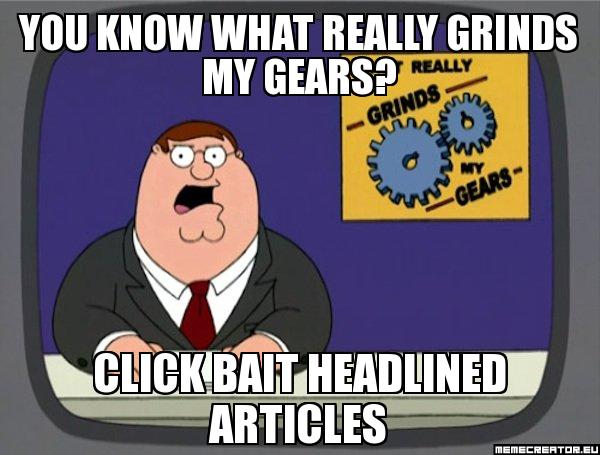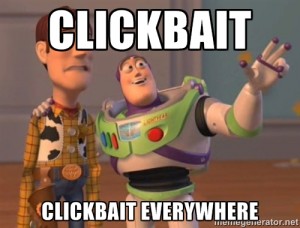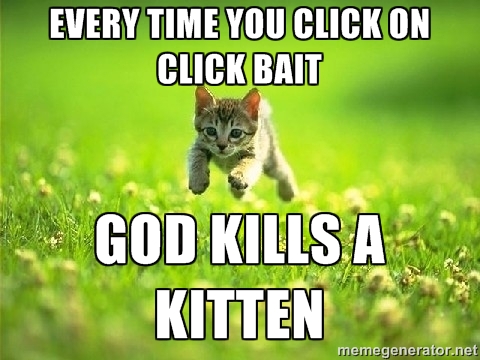Writing About Trendy Topics is so Trendy

The goal for every website is to get as many clicks and links as possible.
Getting one of those is great.
Both at the same time is Internet marketing gold.
One of the easiest ways for sites to make that happen is to write about trending topics.
They want to capitalize on the buzz so they create quick pieces that offer nothing new.
Slap on a vague headline and this is what the business refers to as “click bait.”
One of the most recent examples came a few months ago when Peyton Manning was arrested for cocaine and marijuana possession in Tennessee.
Newspapers, TV, radio and, of course, blogs jumped all over it.

“Peyton Manning arrested” was the headline to force people to click on the link.
“Oh my God, Peyton Manning was arrested?”
Only when they clicked on the link they realized it wasn’t the quarterback of the Denver Broncos but a woman who has the same name.
At least The Tennessean wasn’t as desperate.
The newspaper based in Nashville deserves credit for not being so needy for clicks.
This tactic is mostly used for celebrity and sports news.
Click baiters know the content they create isn’t good enough by itself so they use cheap tricks.
For sports blogs, what they do is follow the legitimate beat writers on social media.
When those newspaper writers or TV reporters break a story, the blogs steal the content, write three sentences and put it on social media for their followers to click on.
“Hey, we got the scoop. Click on our trash.”
Cheap clicks for hot takes.
In some instances, depending on the blog’s following, people will link to it.
Do these blogs give the originator of the news and content a link?
That doesn’t happen nearly as much as it should – if at all.
The same goes for celebs and entertainment.
It’s all about the reward with as little work as possible.
Aside from calling them out on social media or sending them an email informing them of this dirty, cheap trick, there isn’t much people can do about it.

What makes people furious is when the sites that use this tactic outrank the original source.
One that comes to mind is Deadspin.
If you want a great laugh, follow Denver Post Colorado Avalanche beat writer Adrian Dater on Twitter and wait for the times he goes off on the site.
In February, Matt Cutts announced Google had a new tool for people to report the “scrapping tactic.”
Of course, the only way this works is if you know the scrapper outranks the site it stole it from.
But it’s a start.
What’s sad is people don’t have more respect or pride – for their work or that of others.
In a professional setting, you could never get away with this.
If it was newspapers, it would be considered plagiarizing and the person who did it would be fired.
Why is it acceptable on the Internet?
Is it because everyone does it so that makes it OK?
In my mind, if the content you created is solely from an outside source, you should have to put an editor’s note that says, “What you’re about to read comes from so-and-so …” with a link to it. Not a hyperlink either. Give the source the credit it deserves with a full link.
That’s not all.
The source also gets a link in the story and at the end. Again, a full link in both instances.
The problem with this is there is no way to enforce it.
The only way for it to happen is to have people start to practice this on their own.
It’s unlikely that happens because so much of the Internet is all about the reward with as little work as possible.
No longer is it about honor and integrity. It’s about whose first.
That needs to change and now.

Recent Posts
Recent Comments
- Shannon Thammasiene on How to Create a Successful Blog
- Sarah on How to Create a Successful Blog
- How to Create a Successful Blog on 5 Free Keyword Research Tools that will Rock your Socks
- Olivier Hamphrey on This Week In Social Media
- Richard Dickerson on Use Email to Sell without Selling


